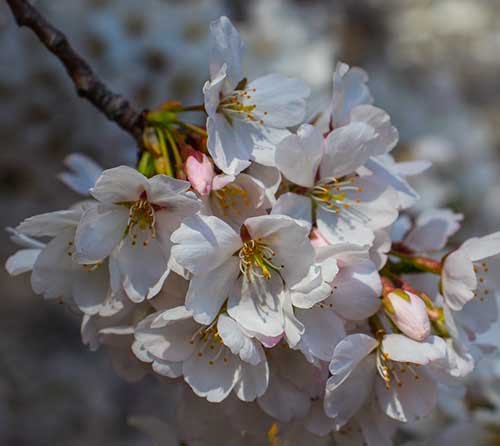Nature photography is one of the most popular forms of photography.You can photograph a wide variety of animals in various habitats, trees or even whole forests, flowers that are either wild or cultivated in greenhouses and gardens, or photograph cut flowers and arrangements indoors,in a studio setting.
Any lens can be used in flower photography, from the ultra-wide angle lens (17mm),to the super-telephoto lens (300mm or 400mm),but if you are serious about closeup flower photography, buy a macro lens.
Most point-and-shoot digital cameras come with a built-in macro mode.Your digital camera’s macro feature lets you get very close to your subject,and that is important when photographing flowers.
A tripod is essential because it reduces the chance that you’ll get a blurry image.Many tripods, even when fully collapsed, are too high for photographing low growing flowers.That is why you need to get a tripod that allows you to get close to the ground. A special kind of tripod, called a tabletop tripod, is great for photographing small flowers and other objects.
Use a color-saturated type film. A film with an ISO 50 or ISO 100 will give you bright colors. Don’t use film faster than ISO 400 for flower photography.
The ideal lighting for photographing flowers is the soft, diffused light of open shade or a cloudy day.Night photography is also an option.A flower photo can be very attractive when illuminated by flash.Wind is the most annoying factor when photographing flowers,so be patient and wait for the wind to die down before you take a picture.
Whether you’re photographing flowers indoors or outdoors,consider unusual angles.Try photographing your flowers in early morning light and photograph them again in late afternoon light.Use warming filters to create mood. Add water droplets to the petal of your flower and give it that dewy,morning look. Experiment with back-lighting and try to highlight the transparency of the petals.
Don’t forget that, although most people love color photography, creative flower photography can be in monochrome as well.
The only way of developing successful techniques in flower photography is to practice, and also learn more about flowers.Botanical gardens and nature preserves are some of the places where you can not only take photos of flowers but also learn more about them.




